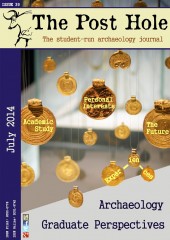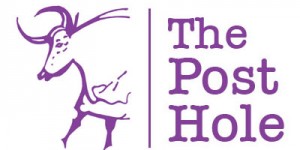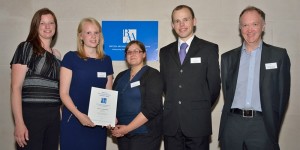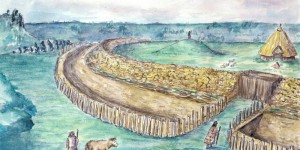This year, my principal area of research has been my undergraduate dissertation, which looks at transfer of literary motifs from Late Period Egypt to the royal court of the Neo-Assyrian Empire in the early 1st millennium BCE. In particular, I am interested in how Egyptian textual images of the Underworld were modified and developed for an Assyrian audience, and who was responsible for this. Subsidiary questions include the movement of Egyptians themselves into the Assyrian heartland, and the accompanying exodus of certain aspects of Egyptian material culture associated with this. I believe that this would have had a significant impact on the everyday living environment of elite Assyrians, which was then reflected in the textual record and the creative word. This research project has required considerable linguistic preparation, drawing on sources written in Egyptian, Akkadian, Sumerian, and occasionally Latin and Greek.
Beyond my dissertation research, I am also co-directing a Cambridge University project entitled Materialities of Extispicy: De-livering Fortunes. This aims to reconstruct ancient Assyrian methods of divination based on the observation of freshly-removed sheep livers. There are two parts to the project: one involves analysis of the relevant cuneiform texts which describe the process and give an indication of what sort of omens were looked for, and the other involves a week-long period of fieldwork with a community of shepherds in rural Armenia. These people slaughter sheep on a daily basis as part of their livelihood, and the sheep are morphologically very similar to those used in ancient times. The project uses the livers from the dead sheep for research purposes, and pays the shepherds a fair price per sheep. I am very proud of this study, as no animals are killed apart from those being slaughtered for food, and we are also injecting much-needed funds into a rural Armenian community. This should help them develop more sustainable farming methods in the longer term.
Next year, I intend to stay on in Cambridge, in the rebranded Division of Archaeology within the Faculty of Human, Social and Political Sciences. While I inevitably retain my reservations about the recent decision to downgrade Archaeology from Department to Division status here in Cambridge, I also believe that the University has a lot to offer and I am very grateful to them for offering me an academically comprehensive and well-funded MPhil package for next year. Once again, my focus is going to be on Egypt in the 1st millennium BCE and its wider relations with foreign powers, and I am very much looking forward to studying the later phases of the Egyptian language: Demotic, Ptolemaic and Coptic. If I succeed in meeting my research objectives next year, I should find myself in a strong position to begin a PhD in this area, and that is my aim.
Beyond pure academia, I have served a third and final term as President of the Cambridge University Ancient Literature Society, and I now look forward to the tenure of my successor. I have very much enjoyed the experience and have learned a great deal in the process, but it will also be nice to have a little more time to concentrate on other projects in the future. Likewise, I have remained actively involved with the National Committee of the Association of Student Archaeologists and I have stayed on as an Outreach Co-ordinator for The Post Hole. The exact nature of my future involvement with both organisations coming into next year is yet to be finalised, but I very much hope that I shall still be able to make useful contributions.
Finally, I would like to record my thanks to all the wonderful people I have had the chance to work with over the past year: that includes all my lecturers, supervisors and advisers at Cambridge, who have put in so many hours to help me with my dissertation, examined papers and other research. My thanks are also due to the Committees of the Ancient Literature Society and the Association of Student Archaeologists, which are both filled with exceptionally talented, committed and friendly people. Finally, I must thank all the staff of The Post Hole with whom I have had the pleasure of working over the past two years: it is a very special journal, and I am proud to have been a part of it.






